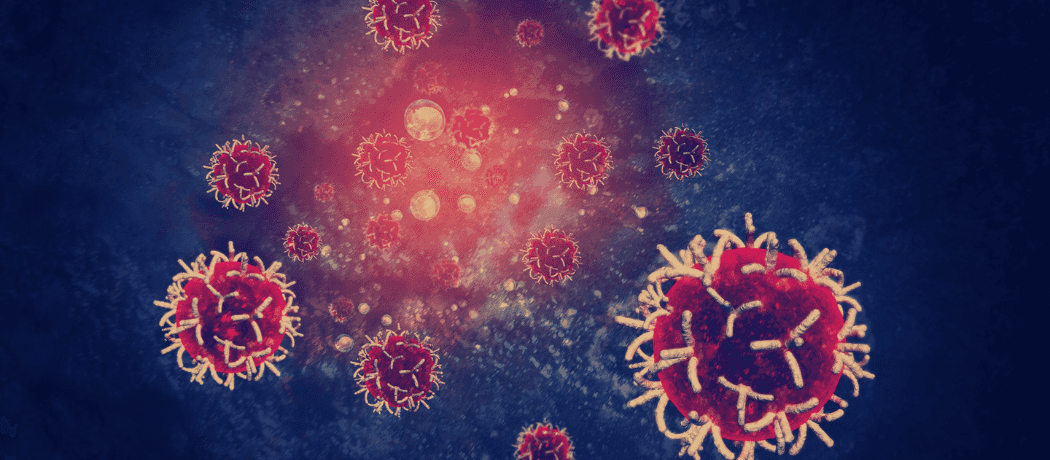
'Fiery' cell death ignites immunity: A new hope for cancer treatment
May 07, 2024
Killing tumours is the goal of radiation and chemotherapy, but these cancer treatments are not 100 per cent effective. Now, a University of Guelph (U of G) study suggests harnessing an “explosive” kind of cancer cell death may help treat notoriously resistant kinds of cancer.
The groundbreaking study by researchers at U of G’s Ontario Veterinary College (OVC) presents a novel approach for doctors to enhance the body’s immune system to combat cancer more effectively. Dr. Sam Workenhe, a professor in OVC’s Department of Pathobiology, and his team demonstrated that inducing cancer cells to undergo pyroptosis, a unique form of cell death, not only bolstered the immune response against cancer but also prolonged survival in mice. This pioneering research was recently published in the Journal for ImmunoTherapy of Cancer.
A large body of research shows that dying cancer cells activate immunity. The question remains: what type(s) of cancer are potent at stimulating the immune response against cancer? Under chemoradiotherapy, cancer cells undergo both cellular stress and cell death. That makes it difficult for clinicians to distinguish what aspects of the treatment contribute to the immune-related outcomes.
As a result, “The individual contribution of each cell death to anticancer immunity remains largely unexplored,” Workenhe said.
Recent studies by other researchers have shown that tumours undergoing pyroptosis emit signals that prompt the immune system’s T cells to attack cancer cells. Workenhe’s team investigated how this form of PCD activates immunity against cancer. To answer this question, the team developed two genetic models of cell death. In one model, the researchers used a protein called gasdermin to prompt immune-stimulating pyroptosis in tumours. In the second model, the team expressed an activate caspase 8 protein to induce cell death by apoptosis, a type of cell death that does not often elicit an immune response.
“Between apoptosis and pyroptosis, there’s a huge difference in immune activation. Pyroptosis is a kind of cell death that can cause early inflammation and T cell activation.” Unlike apoptosis, pyroptosis slowed tumour growth in mice and led to longer survival time than apoptosis. In follow-up work, the team found that pyroptosis – unlike apoptosis – stimulated immune cells called dendritic cells. These cells help “teach” the body’s T cells, also part of the immune system, about what kind of malignancy the body is facing.
 “There is growing interest in the immunotherapy field about how to engage dendritic cells to activate T cells by delivering the right type of signals and the molecular identity of the cancer,” said Workenhe. “In this study, we showed that pyroptosis activates the dendritic cells to activate cytotoxic T cells that can recognize and attack cancer cells expressing different antigens.” Referring to type 1 dendritic cells, PhD candidate and first author Jordon Inkol said, “These dendritic cells have a fascinating ability to engage T cells in fighting cancer.”
“There is growing interest in the immunotherapy field about how to engage dendritic cells to activate T cells by delivering the right type of signals and the molecular identity of the cancer,” said Workenhe. “In this study, we showed that pyroptosis activates the dendritic cells to activate cytotoxic T cells that can recognize and attack cancer cells expressing different antigens.” Referring to type 1 dendritic cells, PhD candidate and first author Jordon Inkol said, “These dendritic cells have a fascinating ability to engage T cells in fighting cancer.”
The researchers hope their work can ultimately help in cancer treatment. Cancer types like brain and pancreatic cancer are largely resistant to immunotherapy. Workenhe hopes their work will eventually help clinicians tackle treatment-resistant kinds of cancers. “Our aim is that by activating this kind of cell death in brain and pancreatic cancer cells, we can perhaps recruit the body’s immune cells to fight these tumours,” said Workenhe. Many cancers are smart at hiding from the immune system, and they avoid inflammatory cell death, such as pyroptosis, by losing or mutating proteins. The OVC researchers are looking at how to restore the pyroptosis pathway to fully activate the body’s immune response. They are also studying how to stimulate tumour pyroptosis without causing inflammation in other tissues that may prompt unwanted immune responses.
Workenhe says the team’s work is essential for developing new treatments and biomarkers for selecting patients and evaluating treatment efficacy. He hopes other researchers and clinicians will further test pyroptosis to develop effective and safer cancer therapies.
This study was funded by the Canadian Institutes of Health Research, SickKids Foundation and the Cancer Research Society.
.png)